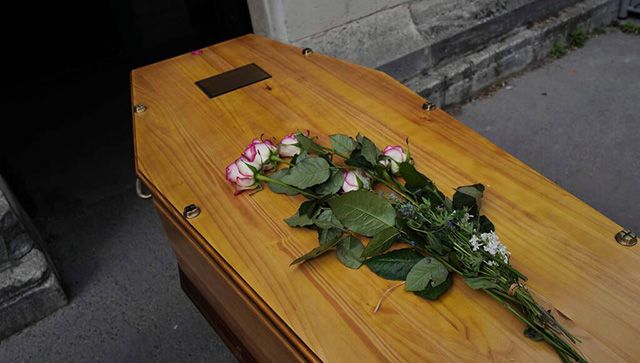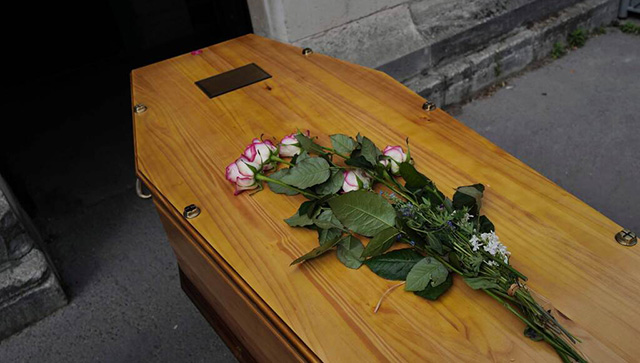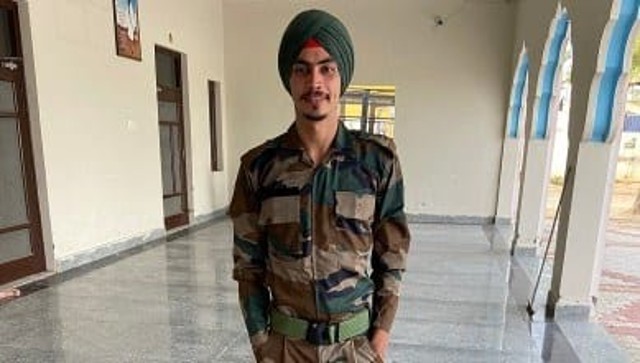The times are a broken mirror – between conscious messaging and the pile-up of media reports, we are losing the image. Poetry has the power to, through the said and the unsaid, the words supplied by the poet, and the visual ability supplied by the reader, recreate, if only for a moment, the whole of an experience. That fragmentary piece can seek a truth which is impossible to describe as a whole. When Mahmoud Darwish talks about wanting to make a cup of coffee in peace, he stands for a symbolic human act in a time of air strikes and impersonal death from above.
These are poems from my recently published collection, The Profane – a few which deal with our political milieu. The language we use in reading about the past makes it safe for us to go there – Martyrdom seeks to remove that veil and return us as spectators to the madness of Delhi and the Punjab in the 80s. Legal language exsanguinates the orders courts actually pass – National Anthem is about what those orders mean to us, and what they can give to us or take from us. I Dreamt of a Lynching is told from the one perspective we cannot recreate, the one that is lost in the violent act.
I Dreamt of a Lynching
In the dream, I swing at the man with the knife
and nothing happens, I’m made of sand.
All the aims I struggled for in life
have left me – there’s no strength in my hand,
nothing with which to grip at clothes, an arm,
everything pulls away like the sea from the land.
All the while, above us, faces loom in a charm.
No one is acting, the circle is spun,
they’re wearing rage masks, no alarm
rings out, it’s just me and the victim. I could’ve run,
but that time is gone, on the ground
bathing in his hot blood – am I father? Am I son?
Who have I let down? How will we be found?
Did I go pleading for mercy, head in my knees?
Did I die on my back without a sound,
staring at the brown sky, faraway trees?
Martyrdom
In 1984, when it happened,
I was between the red walls, becoming.
On that winter morning, Mother tells me
they dragged out our neighbour, frail and grey,
who always wore a white shirt and a brown turban,
whiskered and bearded, a brown sweater vest.
When the vegetable cart would call, he would tremble
his hands in a trance over the tomatoes, the eggplants,
and in happy summer, the mangoes,
humming under his breath.
They dragged him out that winter morning,
and surrounded him; on his knees,
his hands blotting out the sun,
white hair coiled in a knot. So they cut off his ears
and crowned him with a tire; they bathed him in petrol,
his shirt red and gas-yellow. With a whisper,
he went up in a curtain of flame,
dancing for them, screaming, until the fire’s tongue
had kissed his lungs, spinning like a dervish
opening the door, till he was only carbon
trying to marry air.
Don’t buy the art; martyrs go ugly.
No one burns in serenity, blisters with a smile,
is tied to a post and peppered with arrows, looking
up like he’s waiting for a postcard. No one waits
on a hot pan for the rapture.
No one was smiling at Karbala.
If you want serenity, think of the boys by the river,
who waited, turbans binding their hands
behind their backs, black hair tumbling
on their shoulders,
till with a crack, they fell into the ditch
of our cannibal century.
But to make them perfect, some kind executioner
was to turn each boy over, run a knife through his guts,
so no rebellious air could return him to us,
pitch him into the river, a gift for the eyeless.
National Anthem
We will die of this:
Standing when told, sitting in relief,
while our guardians kneel to kiss
the hem of each passing belief.
Remember:
Freedom will not clutch
at the robes of her servants.
Death himself cannot touch
true disobedience.


)




)
)
)
)
)
)
)
)